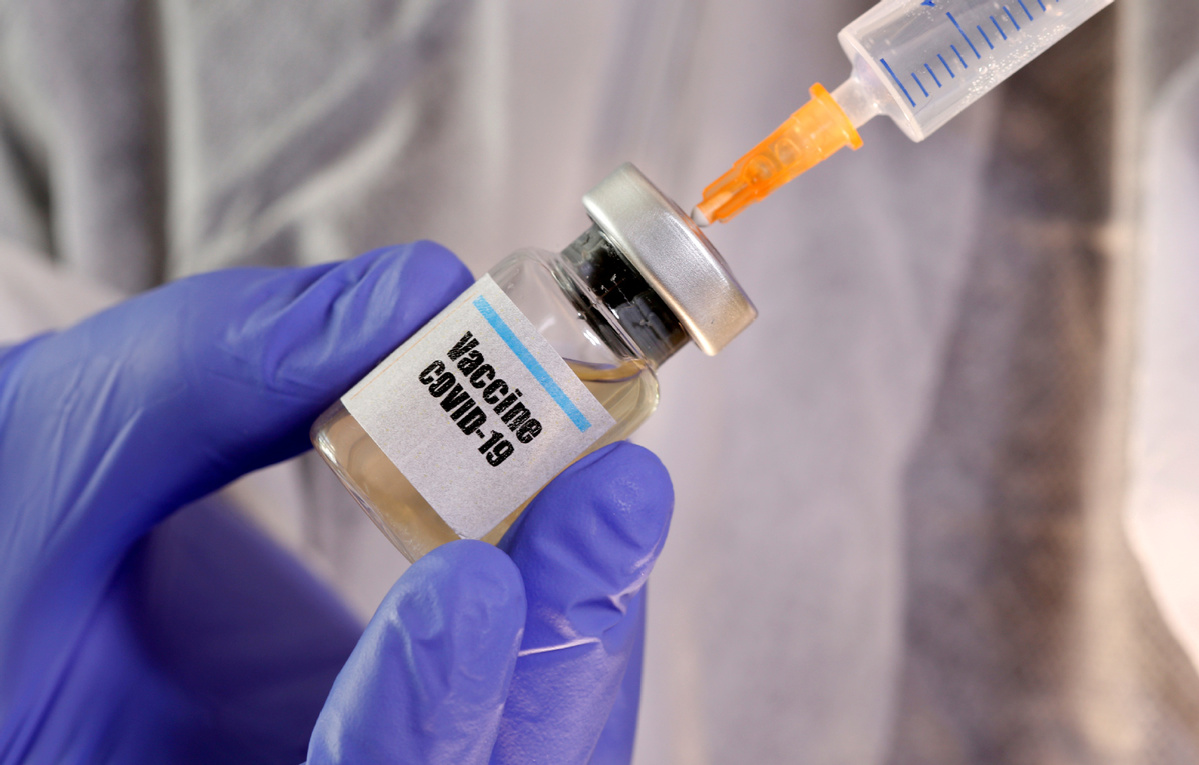Experimental COVID vaccine gets patent


China has recently granted its first COVID-19 vaccine patent for an experimental vaccine jointly developed by the Academy of Military Medical Sciences and Chinese biotech company CanSino Biologics, a decision that validates and protects the innovation of the country's vaccine development.
The adenovirus vector vaccine candidate was found to be safe and able to trigger an immune response in the first and second stages of clinical trials. However, the vaccine, as well as a few other promising candidates, must complete the third and largest phase of trials before gaining market approval, although some leeway will be offered to speed up the process, according to documents released last week by the National Medical Products Administration.
The application for the newly issued patent was submitted on March 18, and was approved on Aug 11, according to the patent document published on the website of the National Intellectual Property Administration.
Animal studies have demonstrated the vaccine's ability to reduce viral amounts in the lungs and to induce proper immunity. In addition, "the vaccine can be manufactured in a rapid and convenient manner and can be mass produced in a short span to cope with sudden outbreaks", the document said.
Ma Yide, an intellectual property professor at Zhongnan University of Economics and Law in Wuhan, Hubei province, said: "Patent approval is meant to protect the creativity of a new product or technology. Winning a patent means the development of the experimental vaccine has achieved substantial progress in terms of innovation."
"The move will also help prevent infringement, misuse and imitation of the latest scientific progress in vaccine research under the legal framework, and curb the negative influence of such behavior on battling the epidemic," he added.
According to Ma, China has been focusing on manufacturing generic drugs for a long time, resulting in fewer patents in the biomedicine sector compared with drug research powerhouses worldwide.
"The development of a homegrown vaccine against the novel coronavirus is a landmark action, and this time, the top intellectual property regulator has acted very rapidly and forcefully to offer legal protection," he said.
The vaccine in the spotlight, Ad5-nCoV, was the first to enter first-stage clinical trials in China in March and the first to begin second-stage trials worldwide on April 12. It uses a weakened common cold virus to introduce genetic material from the novel coronavirus into the human body and train the body to produce antibodies that can fight off the virus.
According to a study published in the medical journal The Lancet on July 20, the phase-two clinical trial involving 508 participants shows that the vaccine is safe and generates antibodies in nearly all people who received effective doses.
The phase-three clinical trial will be conducted overseas and is currently in the pipeline, but developers of the experimental vaccine have yet to announce a specific timetable or location for the trial.
- China completes main structure of world's tallest bridge
- New rare earth deposit discovered in Yunnan
- Medical insurance fund records slight surplus in 2024
- Reception held in Macao to welcome Chinese New Year
- China launches Pakistani satellite, two others
- Former deputy head of China Tobacco under investigation




































